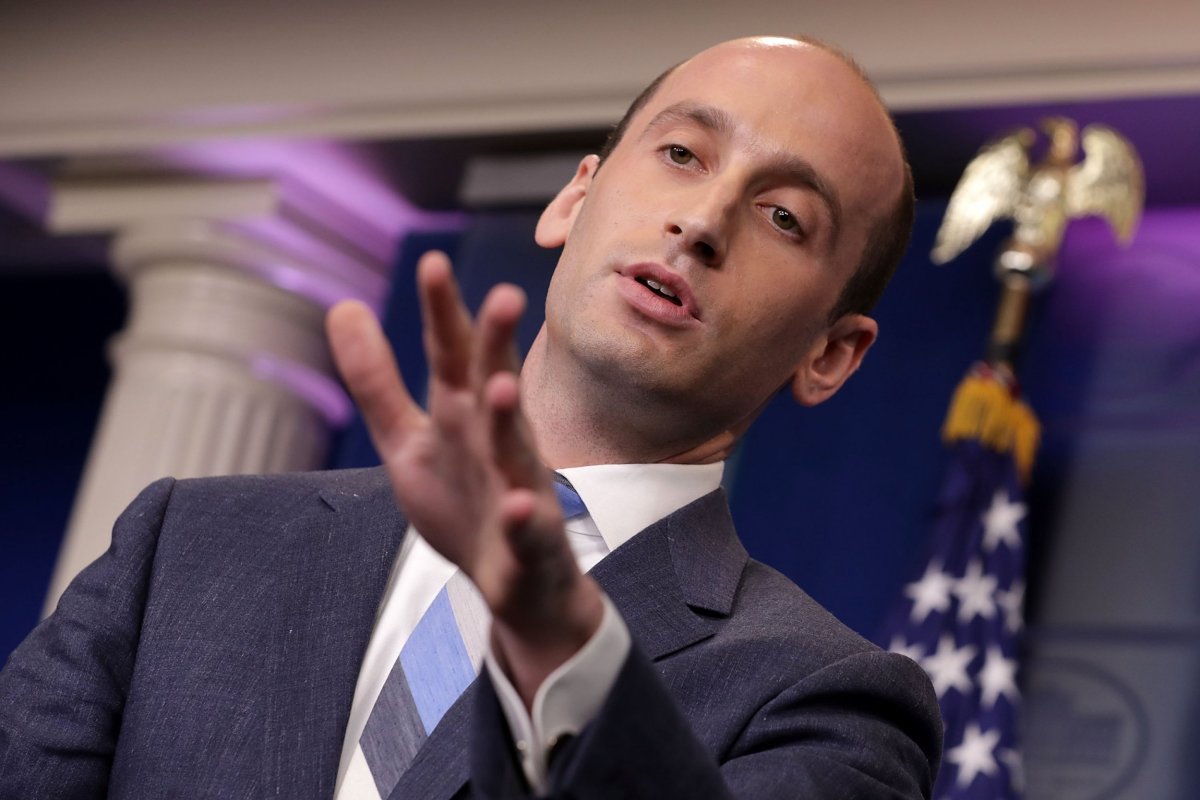Calls have grown among Democrats for President Donald Trump's senior policy adviser Stephen Miller to testify before Congress about the White House's hardline immigration agenda–much of which Miller is believed to have masterminded.
During a Sunday interview on CNN's State of the Union, House Judiciary Committee Chairman Jerrold Nadler said Miller, "who seems to be the boss of everybody on immigration, ought to come before Congress and explain some of these policies," including a controversial policy proposal seeking to release detained migrants into "sanctuary cities."
On Friday, Trump confirmed that his administration had been considering a proposal seeking to send detained migrants to sanctuary cities, jurisdictions that limit their cooperation with federal immigration laws.
"In California, the governor wants to have a lot of people coming in, refugees coming in, a lot of sanctuary cities, so we'll give them to the sanctuary cities maybe to take care of if that's the way we want it," Trump said during an event at the White House.
The president's comments appeared to lend credence to a report from The Washington Post asserting that the proposal had been viewed as a way to "punish Democrats," by pushing detainees into their districts, citing one of two Homeland Security whistleblowers who reported the policy proposal to Congress, as well as several other unnamed Department of Homeland Security officials.
According to The Post, the driving force behind the controversial policy that DHS officials came forward about was none other than Miller, who the newspaper said played a "key role" in the plan, which was reportedly first proposed last year.
While it is common for Cabinet officials to be asked to testify before Congress on oversight matters, demands for a presidential adviser, such as Miller, to appear before a congressional commmittee are not.
It is also likely that Miller could evade coming before Congress by either claiming executive privilege independently or by having Trump deny lawmakers access to his adviser, citing the constitutional separation of powers between the president and Congress.
With Trump at the head of the executive branch and Miller working within it, both the president and his adviser could be afforded the privilege to resist certain subpoenas.
While the U.S. Constitution does not make mention of executive privilege, the Supreme Court has ruled that the privilege extended to the president and other executive branch officials, and could be a constitutional exercise of their powers under the separation of powers model.
In the past, presidents from both parties refused to give congressional committees time with their executive aides, citing the constitutional separation of powers. President George W. Bush, in 2007, for example, invoked executive privilege in response to congressional subpoenas several times, including in response to a subpoena seeking testimony from his former presidential counsel Harriet Miers.
If Miller is asked to appear before Congress, it is unclear whether he or Trump will seek to block such an appearance.
In his interview with CNN, Nadler acknowledged that it was "likely" Miller would try to claim executive privilege. But, Miller said, such a move would be a "misuse" of that right. "Because he seems to be making the decisions," Nadler said, "not the Cabinet secretaries who come and go," who would not benefit from the same privileges as members of the executive branch.
As the reputed mastermind behind some of the Trump administration's most stringent immigration policies, including its travel ban affecting those from Muslim-majority countries, Miller, if he were to testify before Congress, would have much to answer to.
In a recent interview with The Post, Representative Kathleen Rice, a New York Democrat who chairs the House Homeland Security Subcommittee on Border Ssecurity, Facilitation and Operations, said Miller needed to appear before her panel to "make his case for these terrible policies to the American people instead of being this shadow puppeteer.
"It's clear that he's the one pulling the strings," she said. "And if he's going to continue advocating for these policies and personnel changes, then he needs to come before the American people and explain himself. He has to be held accountable."
Newsweek has contacted the White House for comment.

Uncommon Knowledge
Newsweek is committed to challenging conventional wisdom and finding connections in the search for common ground.
Newsweek is committed to challenging conventional wisdom and finding connections in the search for common ground.
About the writer
Chantal Da Silva is Chief Correspondent at Newsweek, with a focus on immigration and human rights. She is a Canadian-British journalist whose work ... Read more
To read how Newsweek uses AI as a newsroom tool, Click here.








